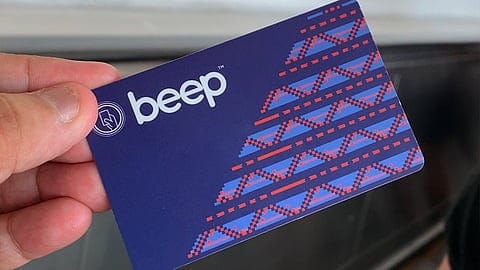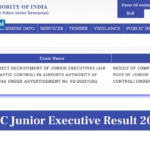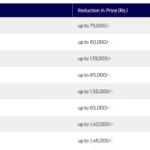In late August 2025, the Department of Transportation (DOTr) made headlines across the Philippines after issuing a stern directive to all major e-commerce platforms: remove illegal Beep card listings or face consequences. Beep cards, the stored-value smart cards used for seamless travel across Metro Manila’s MRT-3, LRT-1, LRT-2, and other transit systems, have been the subject of online exploitation. Resellers have been taking advantage of high commuter demand by hoarding cards and then selling them online at exorbitant prices—some reaching almost double their original value.
With a final deadline of August 31, the DOTr has drawn a clear line. Platforms such as Lazada, Shopee, Carousell, TikTok Shop, and Facebook Marketplace are now under immense pressure to comply, ensuring that commuters get fairly priced cards without being victimized by opportunistic sellers.
This development not only protects commuters but also highlights larger questions about online marketplace accountability, government regulation, and consumer protection.
1. The Problem: Illegal Beep Card Listings Online
The Beep card, introduced to streamline mass transit ticketing, normally costs around ₱100, including a stored load balance of ₱70. Yet in recent months, commuters noticed suspicious listings popping up on various e-commerce and social platforms. Sellers offered cards for ₱200 or more, often in bulk packs of 10 or 20 units, and sometimes advertising them as “limited supply.”
The practice sparked outrage. Commuters questioned how resellers managed to acquire so many cards when ticket booths were reporting shortages. Authorities began investigating and discovered widespread hoarding and reselling syndicates, often involving individuals buying large batches from station outlets and immediately putting them up online for profit.
For the DOTr, this practice was not just unfair but also illegal. Transport Secretary Vince Dizon stressed that unauthorized online reselling constitutes unauthorized selling activity. By allowing such listings, platforms themselves risk being complicit.
2. The DOTr’s Strong Response
Initially, the DOTr issued a public advisory urging commuters not to purchase Beep cards from online resellers. However, the warning had little effect—illegal listings continued to appear in droves. Recognizing that stronger action was necessary, Secretary Dizon sent formal letters to e-commerce platforms demanding the removal of all unauthorized listings.
The ultimatum was clear:
- Deadline: All illegal listings must be removed by August 31, 2025.
- Consequences: Platforms failing to comply risk facing legal charges for condoning unlawful activities.
- Accountability: Both resellers and hosting platforms would be held liable.
Dizon did not mince words, stating that if platforms continued to allow these sales, the government would pursue charges against them. This move underscored the seriousness of the crackdown and the government’s commitment to protecting commuters.
3. Combating Hoarding and Syndicates
The crackdown wasn’t limited to online takedowns. The DOTr also focused on the root cause: hoarding at the station level. To prevent syndicates from stockpiling cards, the department implemented new monitoring measures:
- Purchase Limits – Individuals are discouraged from buying more than two cards at a time. Larger purchases may raise red flags.
- CCTV Surveillance – Cameras are being installed at ticketing outlets to monitor suspicious bulk buyers.
- Police Coordination – The Philippine National Police Anti-Cybercrime Group has been tapped to assist in tracking and prosecuting offenders.
Authorities also staged entrapment operations. In one incident, a seller caught with 50 Beep cards priced at ₱200 each was arrested and charged under the Access Devices Regulation Act and the Cybercrime Prevention Act. Such arrests send a strong signal that profiteering off essential commuter tools will not be tolerated.
4. Addressing Supply Concerns
One of the reasons resellers gained traction was because of commuter fears of a Beep card shortage. Some stations occasionally reported running out of cards, pushing desperate commuters to turn to online sellers despite the inflated prices.
To address this, the DOTr assured the public that supply remains stable. In fact, officials confirmed the release of 300,000 additional cards to ticket outlets across MRT-3, LRT-1, and LRT-2. With these new supplies, commuters are encouraged to buy only from official station counters and avoid panic-buying.
The message was clear: there is no shortage, and hoarding only worsens the problem.
5. How E-Commerce Platforms Are Expected to Respond
With the government’s deadline looming, major platforms are expected to act quickly. Their likely responses include:
- Mass Removal of Listings – Platforms will likely purge all Beep card-related posts, even legitimate ones, until they establish proper verification systems.
- Tighter Seller Verification – Only official distributors or DOTr-accredited sellers may be allowed to list Beep cards in the future.
- AI-Powered Monitoring – Automated filters may be used to detect suspicious keywords like “bulk Beep cards” or listings priced above retail.
- Public Statements – To restore consumer trust, platforms are expected to issue compliance announcements outlining how they are tackling the issue.
For consumers, this may mean a temporary disappearance of Beep card listings online. While inconvenient for some, the move ensures that cards remain accessible through proper channels.
6. What Commuters Need to Know
For everyday riders, the crackdown translates to practical steps:
- Buy Only from Official Sources: Ticket booths, vending machines, and accredited outlets are the safest options.
- Know the Price: The official cost is around ₱100, inclusive of load. Any price significantly higher should raise suspicion.
- Avoid Panic Buying: With 300,000 new cards deployed, commuters should resist hoarding.
- Report Illegal Sales: If you spot Beep cards being sold illegally, report them to DOTr hotlines or local authorities.
The goal is not just to stop resellers but also to encourage commuters to become active participants in protecting the system from exploitation.
7. Broader Implications for Online Marketplaces
This case highlights a growing challenge in the digital age: how should governments regulate online commerce when it intersects with public services?
E-commerce platforms have transformed how Filipinos buy everything from clothes to electronics. But with convenience comes responsibility. When platforms allow listings that exploit consumers or undermine public systems, they risk losing trust.
The DOTr’s firm stance may serve as a precedent for future cases involving online resales of essential goods—from event tickets to government-issued items. It also pressures platforms to adopt better verification, moderation, and reporting mechanisms.
Beyond Beep cards, this moment underscores the need for stricter digital governance. As essential public utilities integrate with cashless or card-based systems, safeguards must evolve to prevent exploitation in both physical and virtual marketplaces.
8. The Legal and Policy Angle
The DOTr’s directive aligns with existing laws like the Access Devices Regulation Act, which penalizes fraudulent or unauthorized transactions involving stored-value devices, and the Cybercrime Prevention Act, which extends liability to illegal online activities.
By invoking these laws, the government is making it clear that online profiteering is not just unethical—it’s punishable. Sellers can face fines and imprisonment, while platforms risk regulatory backlash and reputational damage.
In the bigger picture, this move strengthens the argument for greater oversight of digital commerce. Just as physical retailers are subject to inspections and penalties, online platforms must be held accountable for the transactions they enable.
Conclusion
The DOTr’s August 31 deadline for removing illegal Beep card listings marks a significant step in restoring order to both online marketplaces and the commuting system. By targeting syndicates, coordinating with law enforcement, and distributing 300,000 new cards, the government is addressing both the supply side and the exploitation side of the problem.
For platforms, compliance is now non-negotiable. For commuters, vigilance and adherence to official channels are key. And for policymakers, this episode underscores the urgent need to balance innovation in e-commerce with the responsibility of protecting public interest.
In the end, the crackdown isn’t just about Beep cards—it’s about reinforcing fairness, trust, and accountability in a fast-changing digital economy.
DOTr orders e-commerce platforms to remove illegal Beep card listings










